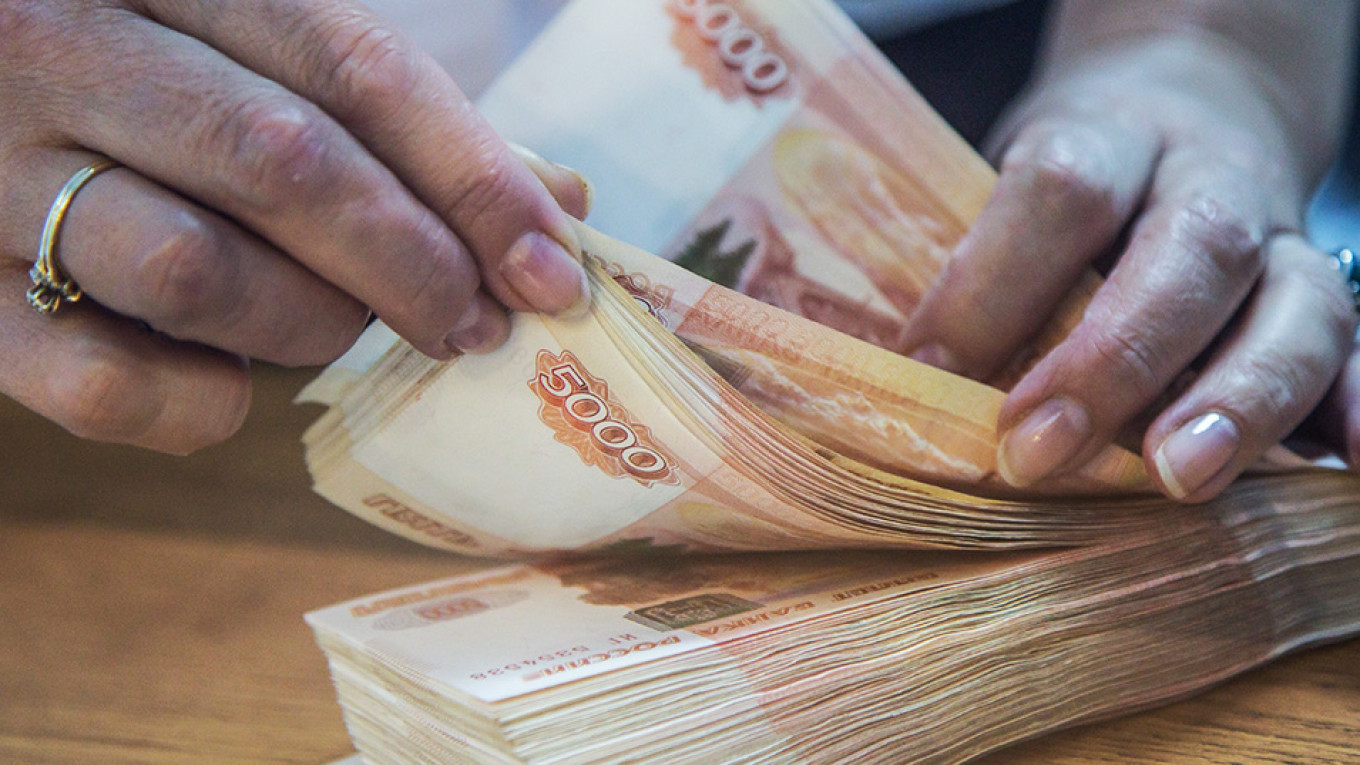Russia has urged consumers and businesses to use digital payments rather than cash in an effort to slow the spread of the coronavirus and told banks to limit ruble notes in circulation.
Consumer safety watchdog Rospotrebnadzor this month encouraged Russians to move to cashless payments, citing World Health Organization guidelines stating that a virus can linger on a banknote for three to four days.
The Central Bank already keeps banknotes for up to 14 days before distributing them and is now asking other banks to do the same, said Vladimir Demidenko, deputy head of its cash circulation department.
Retail banks have also been asked to limit the refilling of ATMs that recycle notes and to disinfect terminals regularly. The limits will not apply to ATMs that do not recycle notes and are restocked by the banks.
About 75% of all cash machines in Russia do not recycle notes and offer either withdrawal services or accept cash deposits, according to the central bank.
The central bank also asked bank staff to use protective masks and disposable gloves when accepting cash from customers.
Digital payments are commonplace in large Russian cities, but much of the population still relies on cash.
Deloitte labelled Russia a “digital champion” in a 2018 report on digital banking maturity in Europe, the Middle East and Africa.
Russia has reported 438 cases of the coronavirus and two deaths.
Other measures taken to limit the spread include the closure of schools and public institutions and a ban on foreign nationals entering the country.
A Message from The Moscow Times:
Dear readers,
We are facing unprecedented challenges. Russia's Prosecutor General's Office has designated The Moscow Times as an "undesirable" organization, criminalizing our work and putting our staff at risk of prosecution. This follows our earlier unjust labeling as a "foreign agent."
These actions are direct attempts to silence independent journalism in Russia. The authorities claim our work "discredits the decisions of the Russian leadership." We see things differently: we strive to provide accurate, unbiased reporting on Russia.
We, the journalists of The Moscow Times, refuse to be silenced. But to continue our work, we need your help.
Your support, no matter how small, makes a world of difference. If you can, please support us monthly starting from just $2. It's quick to set up, and every contribution makes a significant impact.
By supporting The Moscow Times, you're defending open, independent journalism in the face of repression. Thank you for standing with us.
Remind me later.







